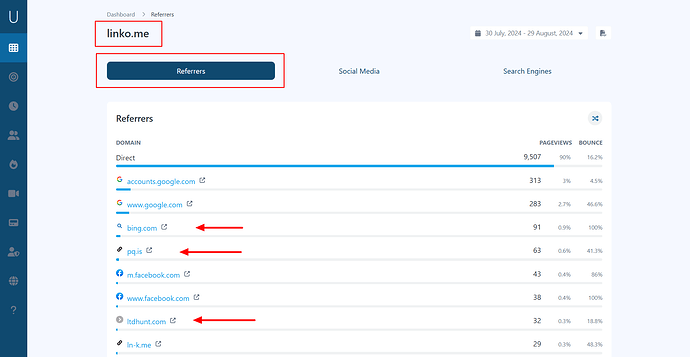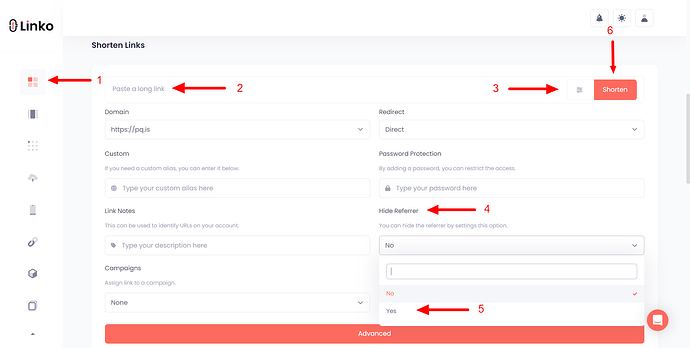What is an HTTP referrer?
The HTTP referrer is a header included in an HTTP request that is sent from a user’s browser to the destination server when a webpage is requested.
This header provides details about the URL of the previous webpage from which the visitor navigated.
Example of referrer domain from Linko analytics
Screenshot is from UserMetric.io (A web analytics wesbite), and from Linko’s statistics dashboard.
How to hide referrer?
Hiding a referrer with Linko is a straightforward process that can be accomplished in just a few clicks.
This feature is available at no cost to all users; the only requirement is to sign up for a free account.
-
Login to your account,
-
Go to the URL shortening section,
-
Paste your URL,
-
Click on the advanced icon,
-
Click on the hide referrer,
-
Select Yes from the drop-down menu.
Why Do URL Shortener Users Want to Hide Referrers?
URL shorteners are commonly used by digital, social media, and affiliate marketers, as well as website owners.
These users may want to hide referrers for two main reasons:
-
Protect Affiliate Earnings: Hiding the referrer can prevent affiliate networks or ad agencies from tracking where conversions come from, which may help protect the marketer’s commissions.
-
Keep Traffic Sources Private: Marketers may want to conceal their traffic sources from competitors or third parties to maintain a competitive edge and protect valuable audience data.
Recommendation:
-
If you’re shortening links to third-party sites, hiding the referrer can help maintain privacy (but use caution).
-
If you’re linking to your own sites or products, it’s best not to hide the referrer, as this can limit your ability to analyze and improve your marketing strategies.

